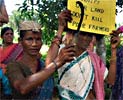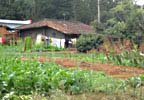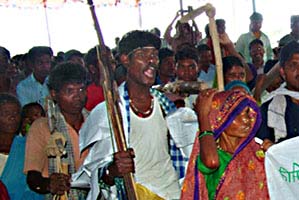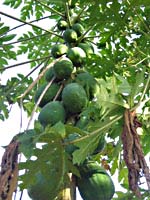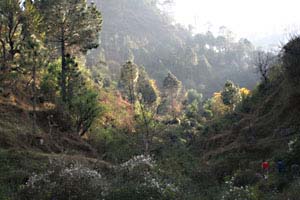ABOUT US
disclaimer copyrights
The problems for farmers worldwide are becoming worse from year to year.
Especially the situation for peasants and landless farm labourers in the countries of the South are dramatic. Loss of land and commons, migration,
poverty and hunger are growing. In many villages everywhere in the South peasants are struggling for their land, water, commons and
culture. They claim more economic and cultural autonomy: peasant autonomy. This autonomy is necessary to overcome the daily humiliation, oppression,
poverty and hunger.
The growing impoverishment of the rural poor, the marginal peasants and the landless farm labourers, makes land reform more necessary than ever. Only a
piece of land for all the people who want to farm, big enough to survive nicely with the whole family, can bring a solution. This is the right of the poor,
because the land is not from the rich, nor from the state, nor from the companies. The land is from the people. There will be no social peace as long as the
poor don't yet get their land.
When there is a threat of eviction, when people fear the loss of their land, every time there is resistance. People organise village meetings, visit
government offices, write letters to different high officials, they form struggle committees, chase land investigators away, organise demonstrations,
sit ins, hunger strikes, they sing songs, shout slogans, they convince people in their own villages not to sign the paper to sell a piece of land and
not accept the compensation money, they file legal cases and they form confederations with other struggling villages. It happens everywhere, every
time. But often there is almost no media attention. Perhaps a few articles in a local edition of a newspaper or once a television item at the state
news channel. That's it.
It is a tragedy and a shame only when there is bloodshed, a massacre, journalists from all the national media fly to that place. Peasant Autonomy doesn't follow the sensation drive of the mainstream media. Still we are happy that – by this tragic way – some stories about the
tribal and Dalit struggle for autonomy comes out. In fact the massacres are the most extreme expressions of the daily humiliation, exploitation and
oppression, year after year, decade after decade.
Sometimes ngos or researchers write a report, concentrating mostly on numbers, problems and recommendations and not that much on the resistance
and the vision of the peasants and how they express their feelings, their thoughts. That is just where Peasant Autonomy is concentrating upon.
When you read here about small initiatives, small meetings, don't feel depressed the problems are so huge and the resistance is so tiny. This
resistance is happening on many places. All together many many people are involved in these local struggles. Many devoted local activists are there whose
names nobody has ever heard about outside their region. People go on with their struggle year after year, building on a culture of struggle of centuries.
The situation in the rural areas is worsening fast by thousands of 'development projects' of many companies. Peasant Autonomy will give extra attention
to the struggles against displacement and for the protection of land, water and forests.
Nowadays the powers of destruction are giant. But there is no future for this uncontrolled, world wide economic system. It is based on exploitation
of nature and poor peoples. It is a robbery economy. It will bring misery to more and more people, it will cause more and more conflicts about natural
resources. That's why this system is not sustainable. It has to change, or it will collapse. The future is for the friendly economy: the local economy
in harmony with the local social diversity, the local culture and the local natural resources.
Peasant Autonomy tells rural activists and other concerned people the stories about the village struggles. It also shows how the same villages go on
with the development of their local peasant economy and culture. We believe a well balanced combination of struggle and development of the rural economy
and culture will be the most successful way to peasant autonomy.
Peasant Autonomy is not an institution or a big organisation. Between 2008 and 2013 two persons were traveling to collect the stories: Manoj Pande and Joop Landman. The former is an experienced Indian activist. He worked on many issues, but the last twenty years he concentrates on the struggle in
the Himalayas. He works together with several small development organisations. The latter is an experienced agriculture journalist from the Netherlands,
with a special interest on small scale agriculture in India.
Janaki Pande, daughter of Manoj, 8 years old, also traveled through India and made quite a lot of the photos you find on the website.
Peasant Autonomy is not about the opinions of Manoj and Joop. It is not about an ideology, theory or political vision. It is about the experiences of
villages struggling for their autonomy, against displacement and for the prosperity of a rural economy and culture.
Peasant Autonomy is a tribute to all the peasants, women and men, who go on with their struggle year after year.
Peasant Autonomy doesn't get any funding or sponsoring from any government, instutution or company. There is no advertisement on the website. Manoj Joop pay their own travel costs and
other expenditures also for this website, with support of a few friends. Peasant Autonomy is completely independent. It is not part of any organisation.
When you have remarks about our website, be it big or small, please let us know!
Peasant Autonomy
Contact: peasantautonomy@gmail.com
See also About us of A Peasant History.
Disclaimer
The information on Peasant Autonomy is collected by visiting villages, interviewing farmers and by documentary photographing. Peasant Autonomy
receives quite a lot of information (stories, reports and pictures) from small local organisations from the villagers or from small organisations
from the city supporting the villagers. This information is based on their own daily experience for many years. We check all stories thoroughly.
Peasant Autonomy looks through the eyes of the villagers and their local organisations. Not because we believe this is the only truth, but to give a
more balanced picture to people who get their information only from mainstream media.
Some additional information comes from articles from newspapers and magazines. We always mention the source of our quotes. When Peasant Autonomy publishes
a complete article, we ask permission from the author or publisher.
Sometimes activists from the villages or the nearby city share their information with us at great personal risk. To protect these sources
it is not possible to give them the credits.
Peasant Autonomy is always open for corrections and supplements.
Contact: peasantautonomy@gmail.com
Copyrights
When not mentioned otherwise the copyrights on the texts are from Peasant Autonomy. You can copy, translate and
distribute (parts of) it for free, but only:
1. when you mention Peasant Autonomy as your source,
2. when you mail us a copy,
3. when you show a link to Peasant Autonomy, in case you publish our information on a website,
4. when you use the text for noncommercial purposes.
When not mentioned otherwise the pictures are licensed under Creative Commons BY and NC.
We only publish pictures with the consent of the makers. For corrections and supplements, please contact us.
Contact: peasantautonomy@gmail.com
